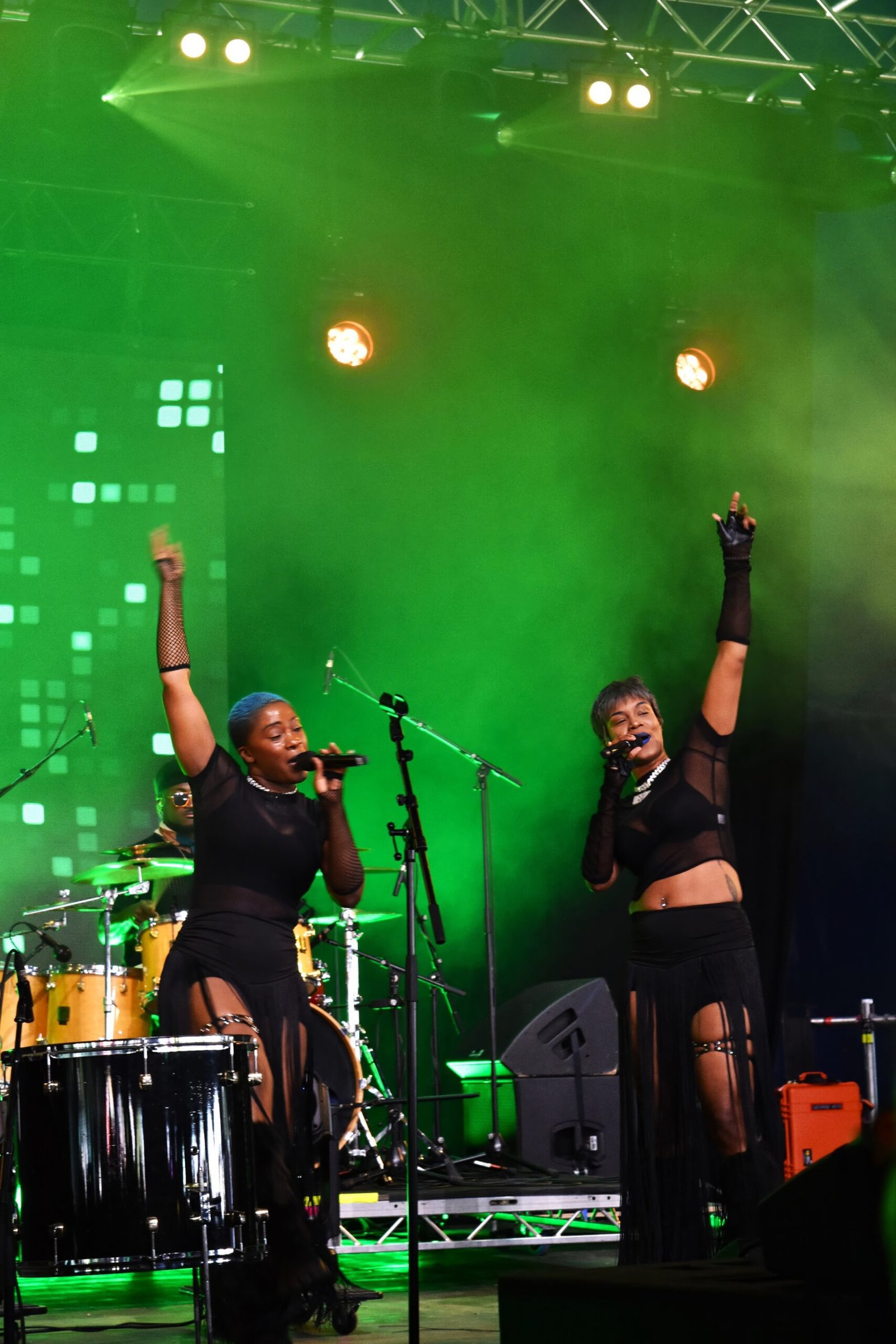Sometimes, the sheer force of a performance can hypnotise an audience. The onstage energy hits onlookers squarely in the chest, putting them in danger of being completely blown away. The ferocity of Defmaa Maadef’s live show surges with currents of defiance and vibrates wildly in its freedom.
In WOMAD’s d&b Soundscape, facing sound issues that would leave most artists weeping or cursing, the Senegalese duo bring their full power, launching into quick-flow a cappella raps without missing a beat when the backing track fails them. Traditional melodies and rhythms blend seamlessly with contemporary electro-pop and hip hop to create an urgent new sound.
Catching up with the pair—close friends Mamy and Defa, both acclaimed artists in their own right—as they sit backstage, adorned with sunflowers and radiant in their post-show glow, we asked them where that fire comes from…
We grew up listening to many giant artists from Senegal and Africa, like Youssou N’Dour, Baaba Maal, and Khar Mbaye Madiaga, the strong woman; like Kine Lam, Osibisa, and Salif Keita.
When you grow up listening to this kind of music and seeing these kinds of artists on stage, you have a fire in you. And in Senegal, the music is also very rhythmic.
So this is it, and it’s combined with the love too, the love that we share and express on stage.
Is your electronica and hip hop fused with traditional elements a fresh take on Senegalese music?
Yes, this is something new—based on our heritage and the musical legacy of Senegal. It’s a mix of the music of artists like Youssou N’Dour and Thione Seck and the new generation’s music. We took the legacy and mixed it with contemporary music too. This mix is DefMaa MaaDef. That’s why it’s new—because you can find some hip hop, some RnB, and the African rhythms. This mix is DefMaa MaaDef’s cocktail Molotov. We are Queens of the rhythm, Queens of the beats of Senegal.
The legacy is important to us because we know what they have done for us. It’s so big: everywhere you go around the world, when you say ‘I’m from Senegal’, everybody is like, ‘Oh, I know Youssou N’Dour, I know Orchestra Baobab’. Those musicians have done everything for Senegalese music.
We just don’t have the right to let this legacy die. We have to keep it. This is our mission. Because it’s with this legacy that we can introduce Senegalese music to the world. So why not us? We can do it.
What are your songs about? What’s your message?
The message is about many things: women, first. The place of the Senegalese and African woman in society is very important to us. The children too.
And sometimes it depends on the mood. We just vibe—some ego tripping, sometimes! But first of all, we talk about African women and their place in society. This is very important. As young women who want to conquer the world, we know that it’s sometimes very difficult to do so, just because we are women. So we say that we don’t need to claim that we are women; we don’t need to claim our place. We just take it!
Are women and female musicians in Senegal empowered, as you are?
They really need our help. Because Senegalese society is a little bit macho. Women are in second place, and we are not okay with it, so we want to take our place at the front of the world, just to show what we can do and who we are.
They need help. But at the same time, the message I want to bring to all women is: stop claiming your place—just go and take it, girl. You don’t need to rap like a man, because this is rap: rap is music, and music is genderless. You don’t need to sing like a man. You don’t need to walk like a man. Just be you. This is the way that you will take your place.
For more updates and to stay connected with Defmaa Maadef, follow them on Instagram, Facebook and TikTok Stay tuned—the duo is currently working on a new album, set for release next year!
Photo ©: Simon Alexander


